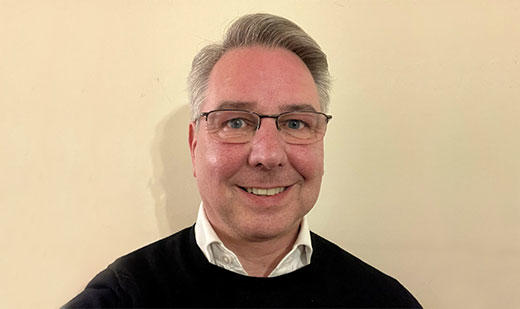Meet Andrew

Working with us through our Cancer Insight Panels
Our panels bring the experience of people affected by cancer to the heart of our work in an accessible and informal way.
Andrew has a background in communications and marketing. He decided to join our insights panel to share his lived experience, as someone who has been diagnosed with cancer twice and seen the impact it has on family members.
In 2010 I got testicular cancer and then in 2022, I got prostate cancer. Both cancer journeys have been very different. The first time I very quickly had surgery and then chemo, the second time I’m currently under “active surveillance” so not having treatment just being monitored twice a year.
Having cancer and not receiving any treatment took time to get used to, but it’s a case of trusting the experts. My cancer is slow growing so I may need treatment in 5-10-years. Due to the amazing advances in cancer treatments, my treatment could be very different from what’s available now. One reason advances happen is because of Cancer Research UK’s amazing work and research.
At work, I’m part of a cancer network and a colleague who’d previously been a panel member and enjoyed her experience suggested I apply. My background is in communications and marketing, so hoped to bring that knowledge to the panel and give back, even in a tiny way. I’m gay so wanted to ensure that diversity is reflected in the communications and approaches that Cancer Research UK develops.
The patient involvement team makes the process of being involved with the group easy. They regularly communicate what we’ll be doing and give us plenty of time to read the materials, they’re also great at giving us gentle reminders! The consultations are interesting, and the topics are very diverse. You feel that you’re making a real difference. We’re a diverse group in age, backgrounds, and of course cancer journeys. The sessions are enjoyable and we’re all respectful of each other’s different views.
My experience is that you can recover or live with cancer following a diagnosis; it is not a death sentence. I feel that it’s an important message to communicate to people and would like to help in shaping that communication. As a gay man, I want to ensure that the LGBTQ+ community is considered and represented in any external communication.
